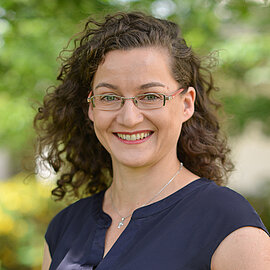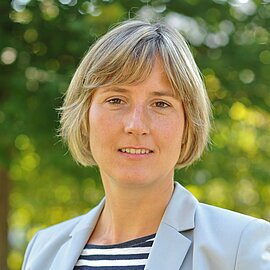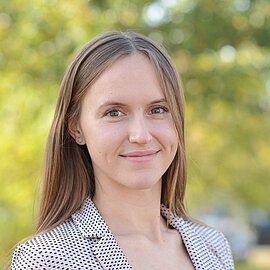Over the coming decades, global competition for dwindling natural resources is expected to increase. Growing populations and climate change will pose major challenges to agrifood systems worldwide. The key to the sustainable development of agriculture and rural areas could lie in the bioeconomy. IAMO Forum 2021 “Agrifood systems in the bioeconomy” saw international experts from research, industry and international organisations come together to discuss the opportunities, innovations and potential challenges of the bioeconomy as an emerging field. In total 315 participants discussed suitable development strategies and current findings in three plenary sessions, one special guest session with industrial design students from the Burg Giebichenstein University of Art and Design, 13 parallel sessions and a concluding panel discussion. To celebrate the Year of the Bioeconomy in Germany, IAMO Forum 2021 together with the 9th International Bioeconomy Conference and the networking event “Digital Incoming BioEconomy. Discovering ǀ Networking ǀ Upscaling”, initiated the first Bioeconomy Week Halle.
IAMO Director Alfons Balmann opened the online conference by highlighting IAMO’s engagement in the bioeconomy. IAMO works on the agrifood sector and the development of rural areas in transition economies and sees the bioeconomy as value creation for producing, processing, conversion, and upgrading of biological resources. IAMO is furthermore a founding member of ScienceCampus Halle Plant-Based Bioeconomy (WCH) and has three junior research groups that are actively working on agrifood systems in the bioeconomy: TRAFOBIT – The Role and Functions of Bioclusters in the Transition to a Bioeconomy (German Federal Ministry of Education and Research funded), Economics and Institutions of the Bioeconomy (WCH funded), and LaScalA – the International Competence Center on Large Scale Agriculture (Leibniz Association funded). Balmann also pointed to potential trade-offs between the bioeconomy and the achievement of development goals such as global food security or sustainable agricultural production, which are becoming more acute, especially in times of climate change. Therefore, the IAMO Forum 2021 was dedicated to these central questions. These included sustainable production and conversion, innovative entrepreneurship, transformation of global and regional value chains, ethical questions about new technologies and societal acceptance, land use conflicts, and rural development and governance.
Cornelia Berns, Head of the International Collaboration and World Food Systems subdivision at the German Federal Ministry of Food and Agriculture began by stating that the pursuit of sustainable lifestyles and management practices has become an important driver for change in society, industry, and politics. The bioeconomy aims to link the economy and ecology for sustainable management and has the potential to create novel products and processes to conserve resources, create wealth and ensure success in the relevant markets of the future. She furthermore highlighted the importance of the bioeconomy for global food security. Because of international trade relations, the German bioeconomy and its material flows are closely interlinked with the bioeconomies of, for example, South America, Asia and Africa. That is why national bioeconomy strategies place great value on observing global boundaries. In addition, suitable land that is less productive or degraded should be increasingly used to meet the growing demand for biomass. This will reduce the pressure on fertile lands and preserve natural ecosystems. As such, conflicts, such as between food security and biodiversity conservation, will be avoided in attaining the Sustainable Development Goals of the United Nations (UN).
Stefanie Bröring, Professor of Technology, Innovation Management and Entrepreneurship at the University of Bonn, Germany kicked off the first plenary session on 7 June witha presentation on technology transfer and innovation adoption. She pointed out that there are new intra-industry subsectors emerging within the bioeconomy, such as bio-energy, bio-plastics, bio-materials, bio-pharmaceuticals and nutraceuticals, which apply biological principles and knowledge to other areas of science. However, despite the new knowledge that is being created, the diffusion rate of these innovations into the market is still very low. This is because the economy is still largely fossil-based and the bioeconomy has yet to become competitive in many ways. She furthermore highlighted the importance of interdisciplinary collaboration in technology transfer and the challenges this poses. New links are being created in the value chain that can be filled by start-ups. She concluded by highlighting the need for more interdisciplinarity in agricultural sciences and education. Neighbouring disciplines in particular should be better integrated into existing curricula. In addition, entrepreneurship in the green sector must be encouraged to further develop fully functioning value chains.
Matin Qaim, Professor of Agricultural Economics at Georg August University of Göttingen, Germany, emphasized the importance of new plant breeding methods for transforming agricultural and food systems. These can boost agricultural productivity, contribute to higher plant diversity and resilience, support more environmentally friendly practices and poverty alleviation. However, despite the fact that GMO crops have been found to be just as safe as conventional crops, the public tends to view genetic engineering (gene transfer and gene editing) as “unnatural” and “risky” and legal regulations often follow suit. He therefore recommended focusing not on breeding methods but on crop traits and their use. In his research on the two major crop traits developed with recombinant DNA technologies—insect resistance and herbicide tolerance—he found that they both contribute to higher effective yields, higher profits for farmers and, to some extent, a reduction in the use of chemical pesticides. In addition, he pointed to the risk of overregulation, which fuels the public notion that new plant breeding technologies are dangerous. Also, overregulation makes the technology unnecessarily expensive, contributes to industry concentration and focusses on large countries, few crops, and few crop traits with large commercial potential. He concluded that although new plant breeding technologies may not be a panacea for the agrifood sector, there is strong evidence that they can contribute to sustainable development and food security. He believes there is a need for an unbiased societal discussion, better regulatory policies, and more competition in the plant biotech industry.
Linxiu Zhang, Director ofthe UN Environment Programme International Ecosystem Management Partnership (UNEP-IEMP) in China, began by discussing the main challenges agrifood systems are facing today: biodiversity loss, ecosystem degradation, and climate change. Addressing these challenges requires the rapid adoption of coordinated solutions both within and outside the food system. She stressed the need for a “One health approach”, a system-based approach in which the environment, human, and organism health are interlinked components. The UNEP-IEMP promotes this as an efficient means of communicating food system policy to the public. Zhang spoke of the need to break the vicious cycle of poverty, ecosystem degradation and climate change by moving beyond a sectoral approach to adopt a nexus approach. That is why the UNEP-IEMP is currently implementing a flagship program on climate, ecosystems and livelihoods to help developing countries reach the Sustainable Development Goals (SDGs). Since 2016, the UNEP-IEMP has implemented projects in over 20 countries using the nexus approach, which Zhang believes is key to enhancing the resilience of agrifood systems, as it takes into account the needs of all stakeholders. Those projects focus e.g. on designing concrete livelihood options that capture communities’ interests and private funding, linking “traditional wisdom” to scientific knowledge, ensuring sustainability through political ownership and community participation, and empowering women for their significant roles in achieving SDGs.
The second plenary session on 8 June focused on “Responsible research and innovation”. In her presentation, Patricia Osseweijer, Professor and Leader of the Biotechnology and Society Group at Delft University of Technology in the Netherlands, raised the issue that rational quantified data on environmental impacts fail to take into account the emotional concerns of the public. She stressed that the rural development research agenda needs to include social goals that are tailored to the needs of local communities, such as bioenergy and products for social development. Finally, she concluded that the bioeconomy is a transition in which the right questions on ethics and values need to be addressed using relevant facts.
Andreas Pyka,Professor of Innovation Economics at the University of Hohenheim in Stuttgart, Germany, looked at substitution, structural change and transformation in the bioeconomy. He argued that the original (narrow) view on the bioeconomy, namely that it is the substitutionof oil-based resources with bio-based resources, continues to influence our technology-oriented understanding of the bioeconomy, particularly in economics. Traditional perspectives from engineering and economics dominate current norms and shape the way society views the bioeconomy. He questioned the adequacy of the neoclassical substitution approach as an explanatory approach for a sustainable economy and suggested using experimental behaviour approaches. He recommended redesigning innovation systems as Dedicated Innovation Systems that can trigger paradigmatic changes.
Christina Pinsdorf, Research Associate at the Institute of Science and Ethics (IWE) at the University of Bonn in Germany, adopted a philosophical perspective on the persisting challenges of the green bioeconomy and ethics. She concluded that the bioeconomy is neither a panacea for the diverse crises of the Anthropocene nor is it sustainable per se. Economic growth affects the natural systems on which it is built and the social systems in which it is embedded. This is why the bioeconomy, which is still strongly connected to the concept of economic growth and prosperity, needs to be aligned in a manner that supports humanity within ethical and ecologic boundaries.
The third plenary session concentrated on policy options. Dimitris Diakosavvas, Senior Economist in the Agriculture and Resource Policy Division of the OECD Trade and Agriculture Directorate in France, gave a talk on the bioeconomy and the sustainability of agrifood systems. He pointed out that food systems are facing a daunting triple challenge in terms of food security and nutrition, livelihoods, and environmental sustainability. The bioeconomy can contribute to the sustainable development of the agrifood system through the creation of new business, innovation and employment opportunities, an increase in the efficiency and productivity of natural resources, and adaptation to climate change. He argued that despite notable progress and increasing adoption of bioeconomy-related policies in different countries, they are often counterproductive and poorly aligned to meet policy objectives. Therefore, there is a growing need to develop a new paradigm for research and innovation within the whole agrifood system that would focus on Research for Development rather than Research and Development and place more emphasis on institutions and stakeholder involvement. Another important challenge is to develop a generic conceptual framework to monitor progress, which should help raise awareness, measure progress, and identify potential opportunities and risks.
Kean Birch, Associate Professor at York University, Canada, looked at the co-construction of markets and natures in the emerging bioeconomy, with a specific focus on biofuels. He noted a declining interest in the biofuel discussion. Moreover, biofuel production volumes in the US and Europe have remained virtually stable over recent years due to “physical” constraints such as cellulosic biofuel production or the 10-percent blending limit. The speaker outlined three major policy challenges in terms of investment: encouragement, sustainability, and development of markets, which may stimulate the production of biofuels.
On the third day of IAMO Forum 2021, a final panel discussion was held on the topic “From extracting to creating value in the bioeconomy”. Moderated by journalist and author Christiane Grefe, the discussion centred around the bioeconomy’s potential for value creation as well as possible risks and public concerns. The panellists looked beyond the technological aspects of the bioeconomy to also consider the role of policy making, society and the environment, and the potential conflicts or trade-offs that exist between them. In order to cover all sides of this complex topic, representatives from research, industry and NGOs took part in the discussion.
Justus Wesseler, Professor of Agricultural Economics and Rural Policy at Wageningen University in the Netherlands, and President of the International Consortium on Applied Bioeconomy Research (ICABR), conducts research on the economics of biotechnology, regulatory economics and sustainable value chain development. In his opening statement, he referred to the EU’s tough regulation of plant breeding methods, which in his opinion stands in the way of innovation. He called for a more objective debate on new technologies that takes into account scientific facts. Approval procedures should be differentiated without disregarding the risks and international standards developed.
Martin Langer, biochemist and Executive Vice President at BRAIN Biotech AG, Germany, sees the bioeconomy as a knowledge-based means of improving the sustainability of economic processes. The bioeconomy can provide solutions to urgent problems such as population growth, consumerism, and climate change. In his presentation, he noted that while Europe has a very good research community, problems such as difficulties raising capital and regulatory hurdles are preventing scientific findings from being put into practice. As a result, Europe risks falling behind the competition. In the same vein as Justus Wesseler, he argued in favour of international regulatory standards. Overall, though, he sees the bioeconomy in a positive light, as there is increasing pressure on companies to act more sustainably (e.g. through higher carbon pricing) and technologies are improving. As a result, various approaches are becoming more economically viable.
Peter Gerhardt, Managing Director at denkhausbremen e.V, Germany, primarily highlighted the socially sustainable aspects of the bioeconomy. In his view, the bioeconomy runs the risk of exacerbating current social problems. For example, many raw materials in the bioeconomy come from the Global South. He argued that raw materials should instead be sourced and used on a regional level where possible and kept in the value cycle. He noted that researchers have a responsibility to respond to public concerns about genetic engineering. Furthermore, the debate on genetic engineering needs to be broadened and a democratically legitimized consensus reached. Gerhardt also advocated for a renegotiation of research funding. According to him, funding is too market-oriented and favours (bio)technological processes. Holistic aspects of the bioeconomy, on the other hand, are given too little consideration.
Regina Birner, Chair of Social and Institutional Change in Agricultural Development at the University of Hohenheim in Stuttgart, Germany, and member of the Bioeconomy Council of the German Federal Government, stated that the two paradigms of the bioeconomy, “extracting” and “creating”, are not fundamentally contradictory. A means must be found to develop the potential of the bioeconomy without losing sight of the risks. However, the current framework conditions are unsuitable for this. Members of politics, industry and NGOs have often already made up their minds on certain subjects and are hesitant to move from their positions. It is therefore necessary to resolve conflicting goals in a broad social dialogue, for which, however, a scientific basis must first be established. She noted that legal regulations are not necessarily the best way to ensure the most ecologically sound practices. Instead, a variety of different approaches are needed.
IAMO Forum 2021 was organised by the Structural Development of Farms and Rural Areas department at IAMO and funded by the German Research Foundation (DFG) and Rentenbank. The Leibniz ScienceCampus Halle Plant-based Bioeconomy (WCH), BioEconomy Cluster, the International Competence Center on Large Scale Agriculture (LaScalA), the BioMonitor project, and the International Consortium on Applied Bioeconomy Research (ICABR) were partners of the event.
Detailed information on IAMO Forum 2021 can be found here: www.iamo.de/forum/2021
Next year’s IAMO Forum “Rural resilience in a post-pandemic era: challenges and opportunities” will take place from 22–24 June 2022 in Halle (Saale), Germany. Further information: www.iamo.de/forum/2022



